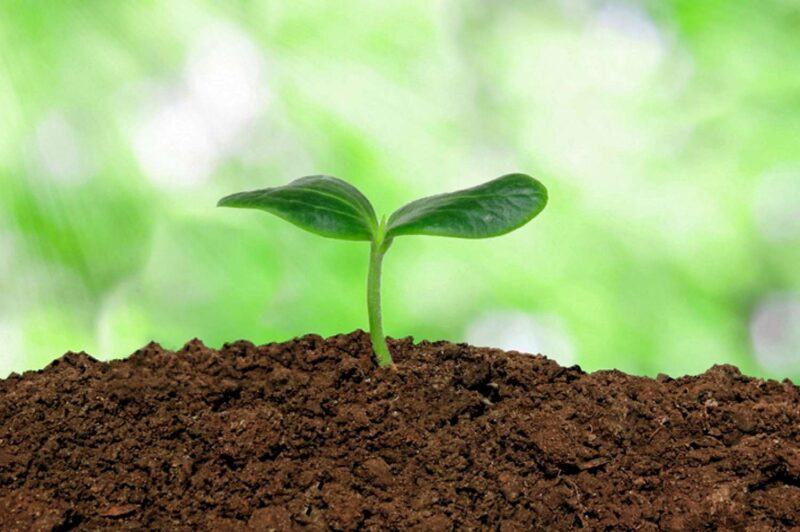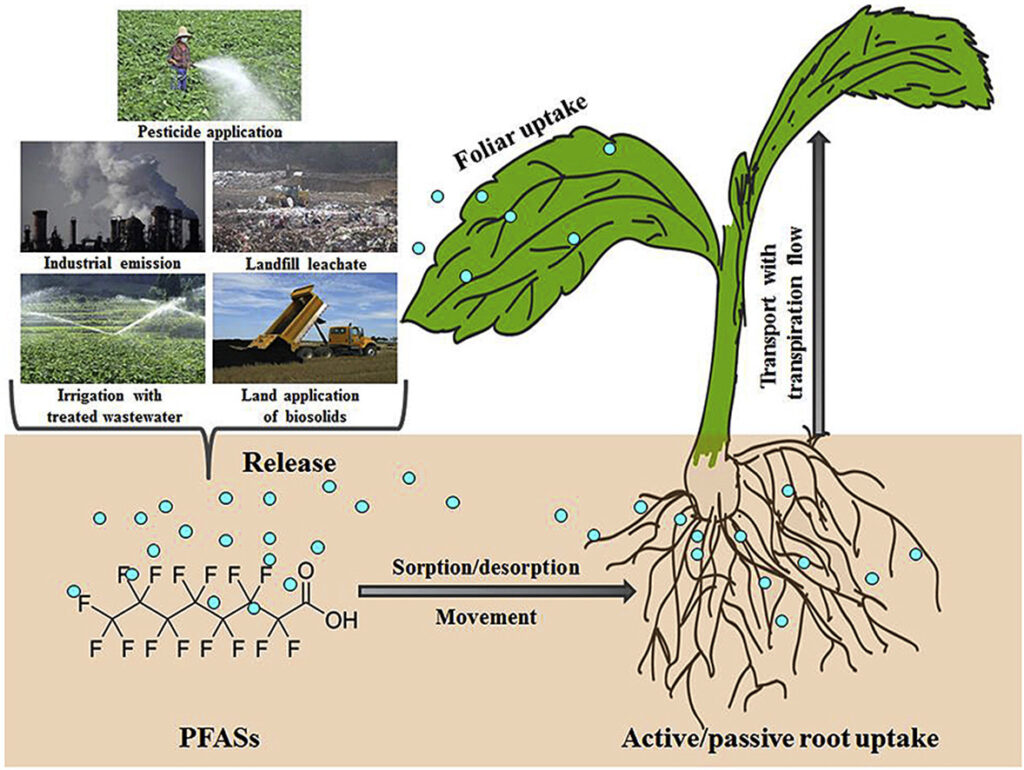Join CCGA on Saturday, Feb. 25 to discuss the safety of biosolids and PFAS from a soil and plant perspective

The issue of PFAS contamination in biosolids has become a concerning issue for community gardeners. Since last autumn, CCGA has been focused specifically on the problem community gardeners face with biosolids from MWRD (Metropolitan Water Reclamation District) and the necessity of starting a community-wide discussion to outline a way forward.
Saturday, February 25
10:30am-12:30pm
The Hatchery Chicago
135 N. Kedzie (at the Kedzie Green Line)
Cost: Free
Space is limited, please RSVP by signing up below.
CCGA has invited Mariyana Spyropoulos, Metropolitan Water Reclamation Commissioner, and Dr. Dominic Brose, MWRD Senior Environmental Research Scientist, to join Jennifer Walling, Executive Director of the Illinois Environmental Council, Dr. Andrew Margenot, Assistant Professor of Crop Sciences at University of Illinois, Nance Klehm, founder of Social Ecologies, and concerned community gardeners to have a discussion about the issue of PFAS soil contamination. MWRD will bring research findings to contribute to an open and solution-oriented discussion. Jen Walling will provide environmental policy and strategy insight. Nance Klehm brings her work on land politics and soil heath to our panel, and Dr. Margenot will share a soil science and chemistry perspective, as PFAS contamination of agricultural soils and water has quickly become a farm and food safety issue in many states.
The CCGA education team promises an informative discussion, open to all community gardeners and interested participants. With this event, CCGA aims to identify resources for gardeners who have been impacted by the possible contamination of soil in our gardens and urban farms.
CCGA’s overarching goal is to develop a community gardening policy for biosolids and PFAS, as well as advocate for a city-wide plan.
Bring your questions to the event! We will be collecting question cards from attendees for the moderator to present to the panelists.

About the panel
Dr. Dominic Brose is a Senior Environmental Research Scientist at the Metropolitan Water Reclamation District of Greater Chicago (MWRD). His specializations are in biosolids, soil chemistry, statistics, and risk assessment. Prior to the MWRD, Dr. Brose was with the National Academies of Science, Engineering, and Medicine and ToxServices, LLC in Washington, D.C. Dr. Brose received his B.S. from Purdue University and Ph.D. from the University of Maryland.
Nance Klehm has been working in bioremediation for over 10 years and has been an ecological systems designer, landscaper, horticultural consultant, and agroecological grower for more than three decades. Her approach is centered on instigating change by activating already existent communities, and her work demonstrates her lifelong commitment to redefining the way human populations coexist with plant and animal systems on this planet. She is the founder and director of operations of Social Ecologies, which creates durational projects that aim to build healthy habitat and interaction through direct engagement of place with those who dwell there. She recently launched The Soil Keepers Community Training Program, which is designed to train soil advocates to amend soil in their yard, neighborhood, or community-led remediation project through a science-based, 4-unit course exploring the body, life, and chemistry of soil. The program endeavors to build a network of soil advocates who are equipped with the knowledge and skills to create social ecologies that are resilient to the challenges of the 21st century.
Dr. Andrew Margenot is an Assistant Professor in the University of Illinois Crop Sciences. His research interests include urban agriculture and soil- organic matter and enzymes. His team evaluates how human activities can enhance or compromise soil services to human societies, with an emphasis on food security from urban and rural agro-ecosystems in the U.S. Midwest and East Africa. His work advances how we monitor and manage soils as natural capital.
Mariyana Spyropoulos was elected to the Metropolitan Water Reclamation District Board of Commissioners in 2010, serving as Board President from 2015-19. Mariyana emphasizes community outreach and engagement by speaking to community groups throughout Cook County about water, good government, and environmental issues. In 2017, she received both the Illinois Water Environment Association Public Official Award and the Spirit of the River Award from Friends of the Chicago River.
Jennifer Walling is the Executive Director at Illinois Environmental Council, where she has served since January of 2011. She oversees the strategic direction and management of the organization and lobbies decision makers on environmental issues. Jen is dedicated to building the power of Illinois’ environmental community to secure policy outcomes that protect the environment.
Moderator
May Toy is the President of the Skinner Park Advisory Council and a member of the CCGA Advocacy & Outreach and Resources & Distributions teams. Her love of gardening started as a toddler, learning from her mother who’s a natural gardener. May has been a community gardener for over 25 years. As president of the Skinner Park Advisory Council, she led efforts to help build and restore three community gardens: two in Skinner Park and another on a closed section of Loomis Street. The Advisory Council recruits volunteers to help maintain the gardens which cover nearly 3/4 of an acre and provide beautiful tranquil spaces for people to enjoy nature and to grow both community and food organically. May is also active in her community and is an advocate of public parks, open spaces, and community safety. She volunteers her time to serve as Neighbors of West Loop’s Vice President and Chair of the Parks and Open Space Committee to work on park issues and concerns in the West Loop as well as on the 12th District’s Police Advisory Council.
Event Info
The Hatchery Chicago is located at 135 N. Kedzie, at the southeast corner of Lake St. and Kedzie Ave., right at the Kedzie Green Line station.
Checking in: Enter the front door to the Hatchery building on Kedzie, and you’ll see a CCGA check in table.
Parking: There are a limited number of parking spots in the surface lot off of Albany between Lake St. and Washington Blvd. There is also free street parking on Lake St. or Washington Blvd.
Beverages & Snacks: We’ll have some coffee available. Please bring your own water or another beverage, as well as any snacks!
